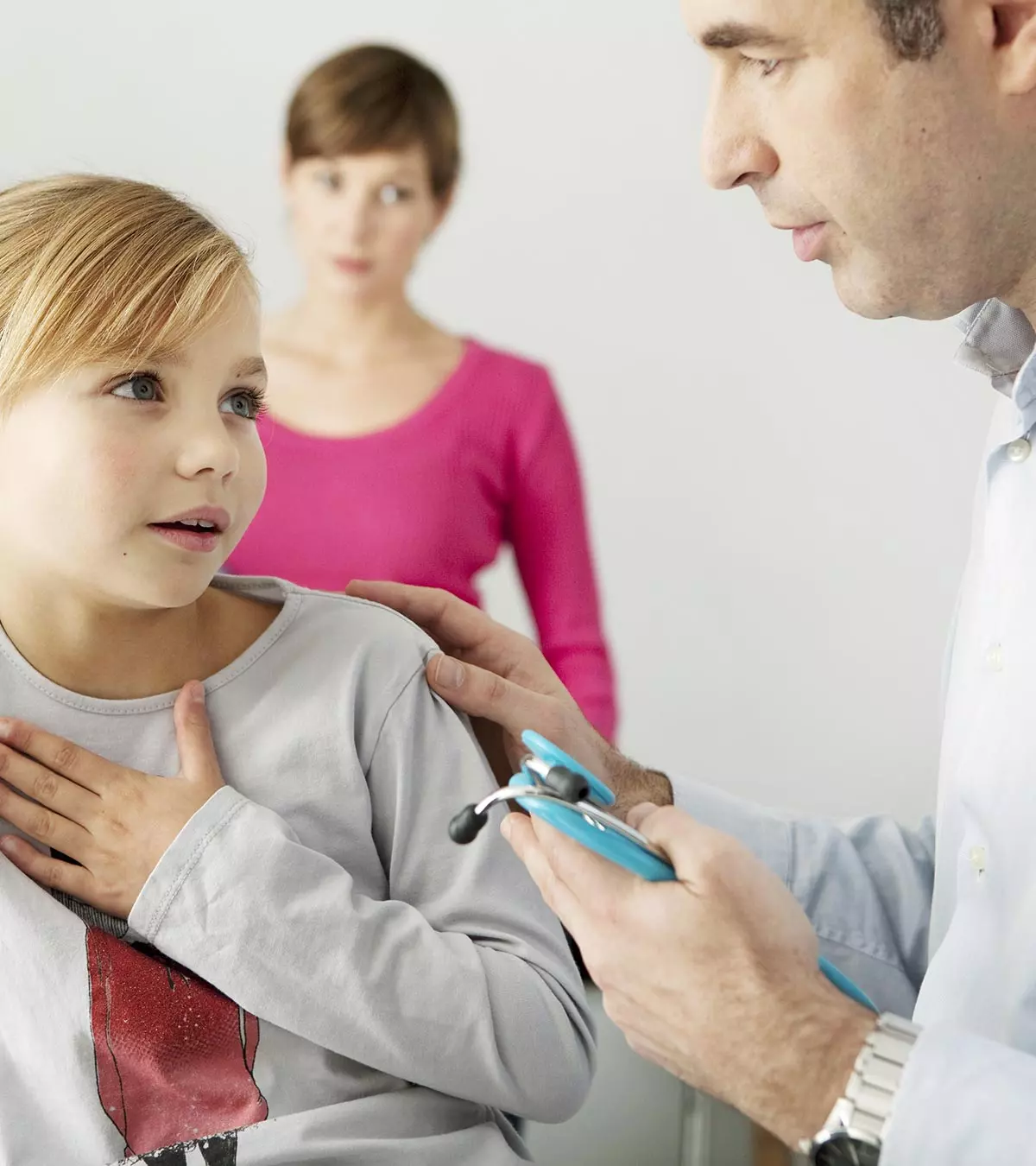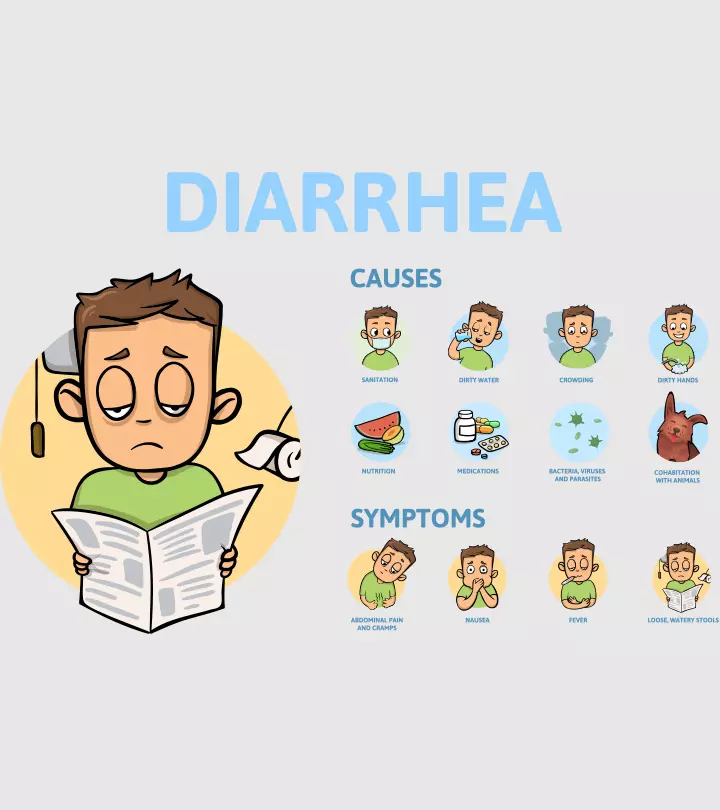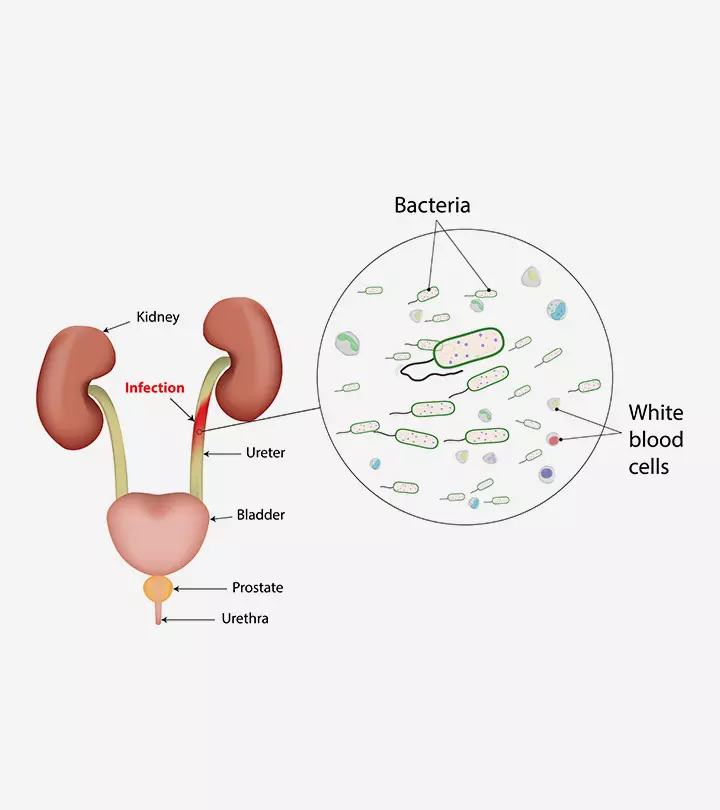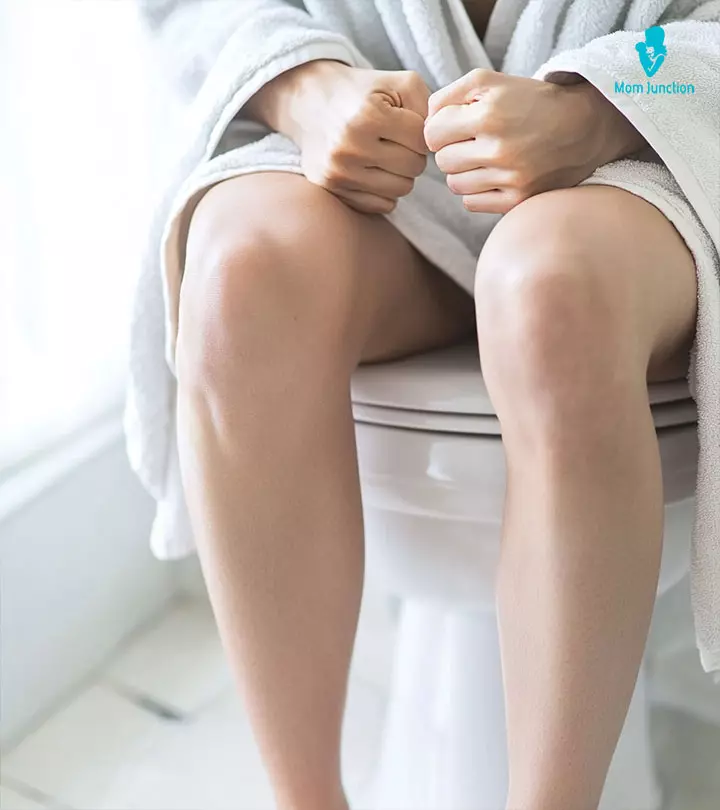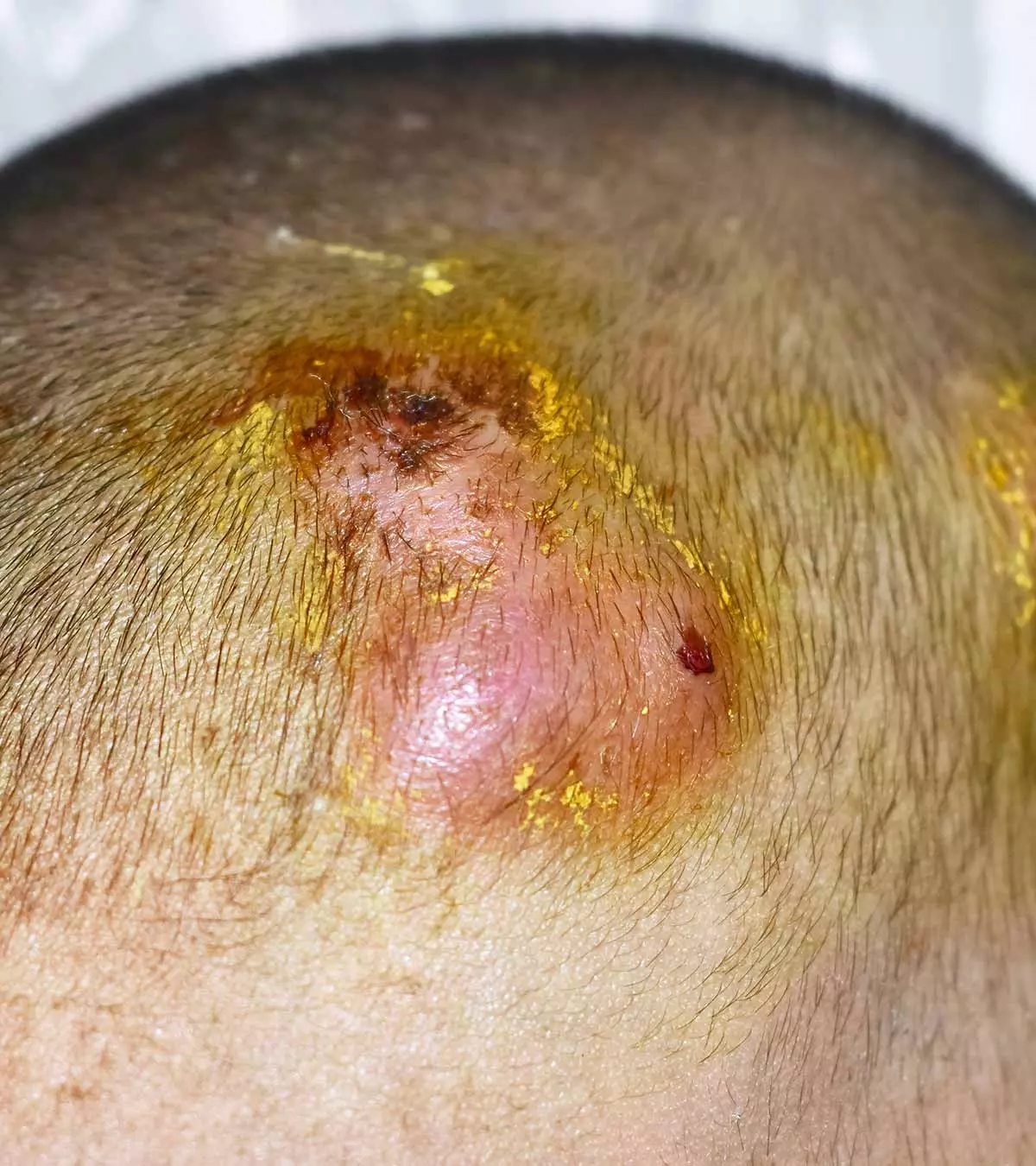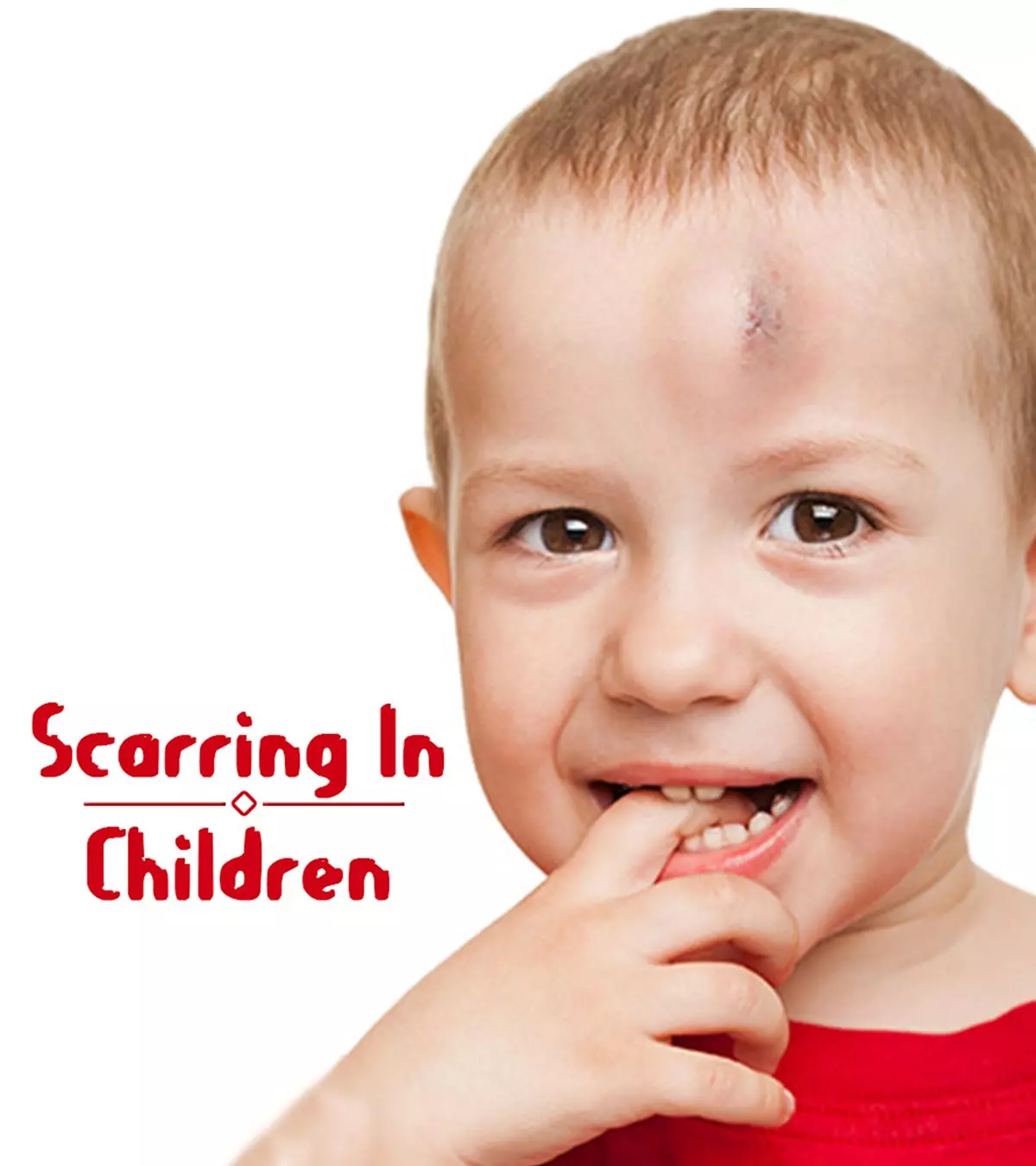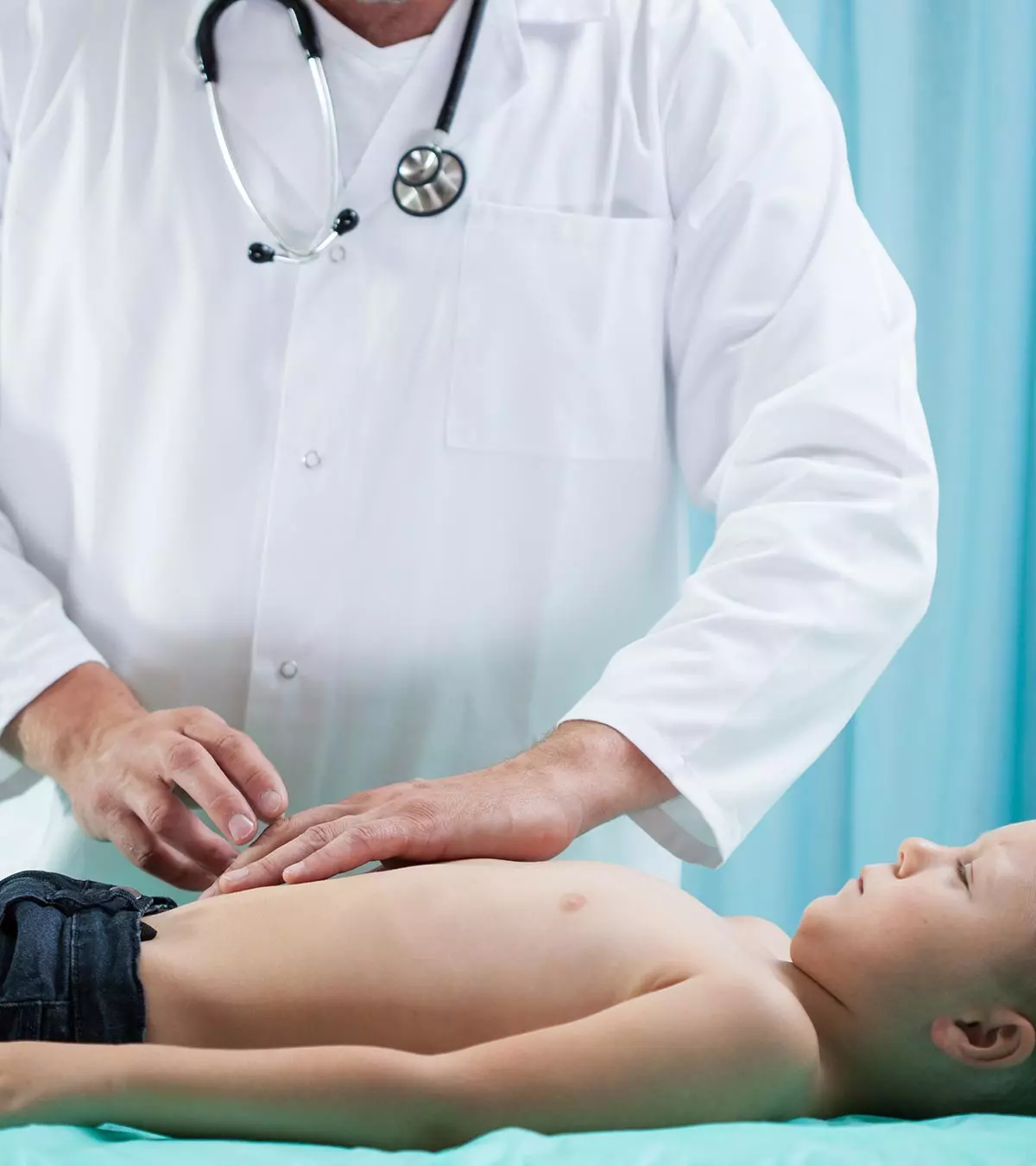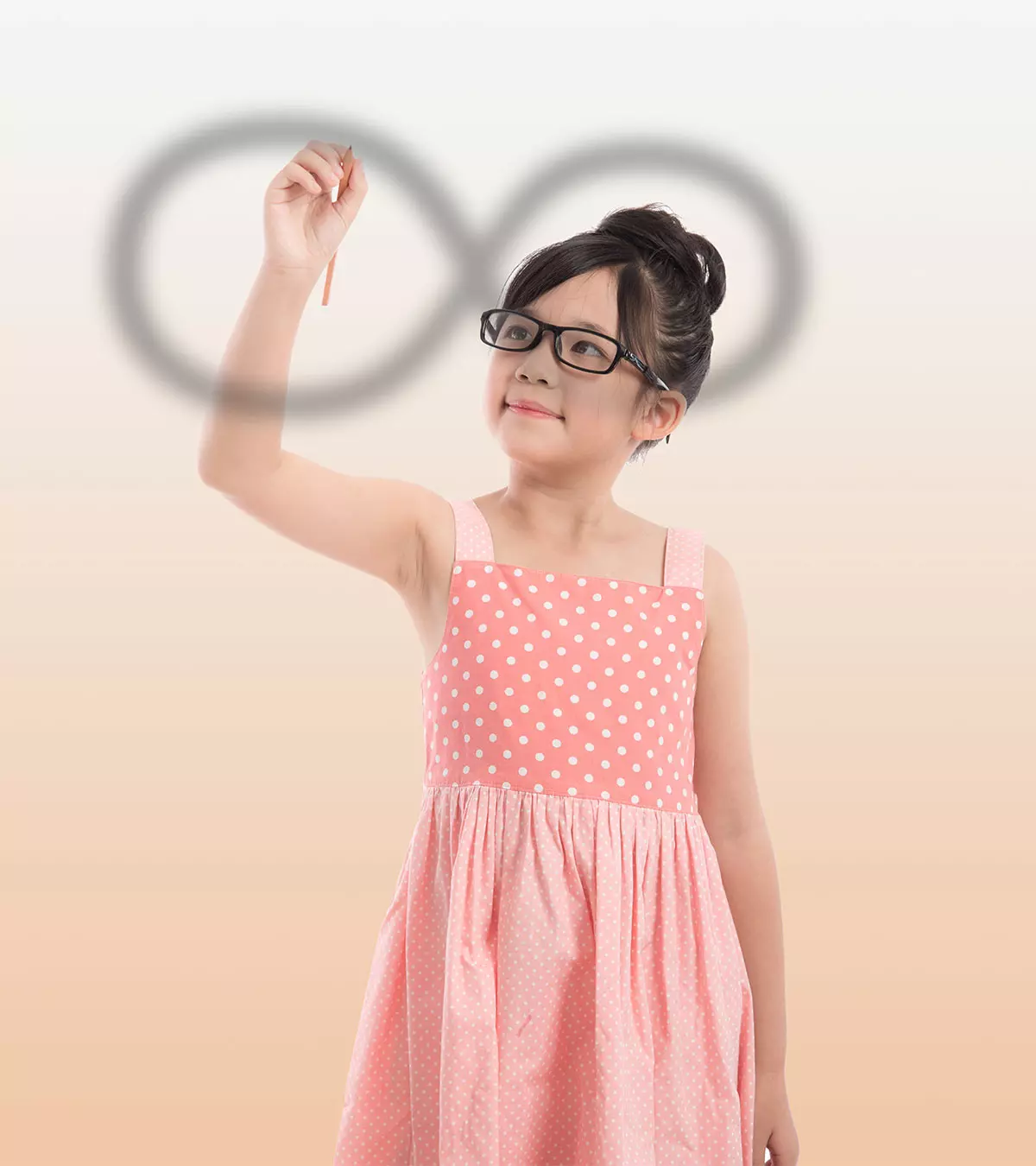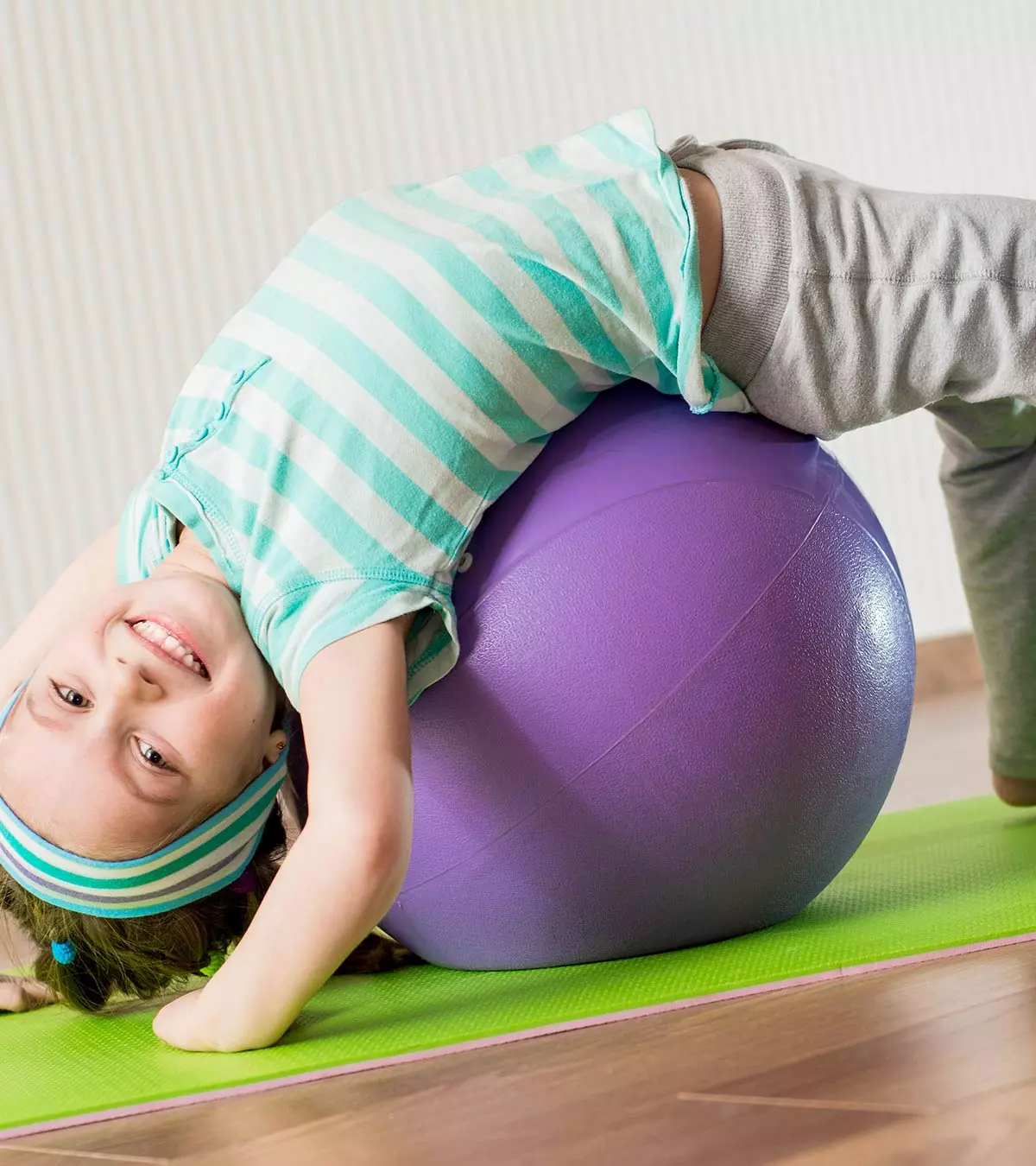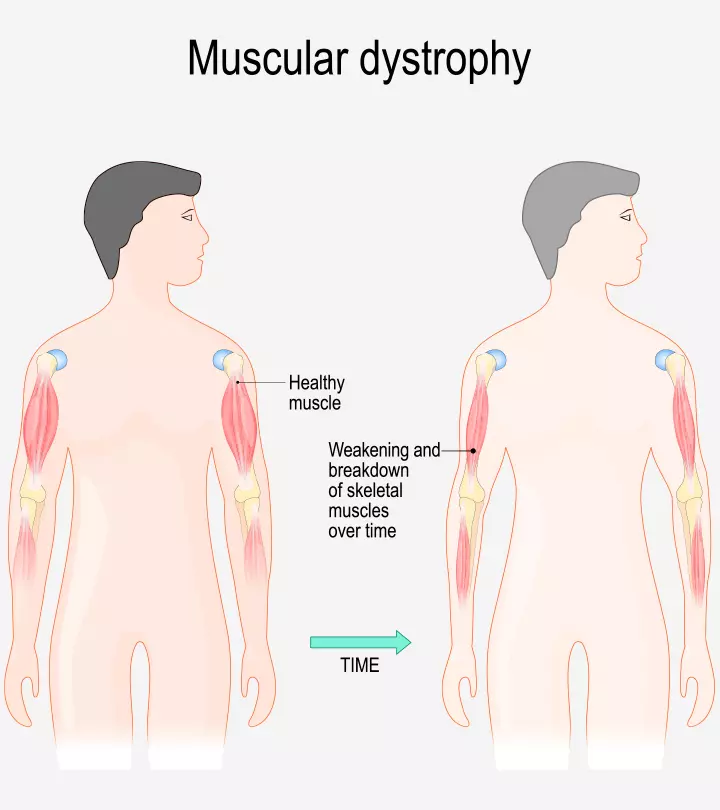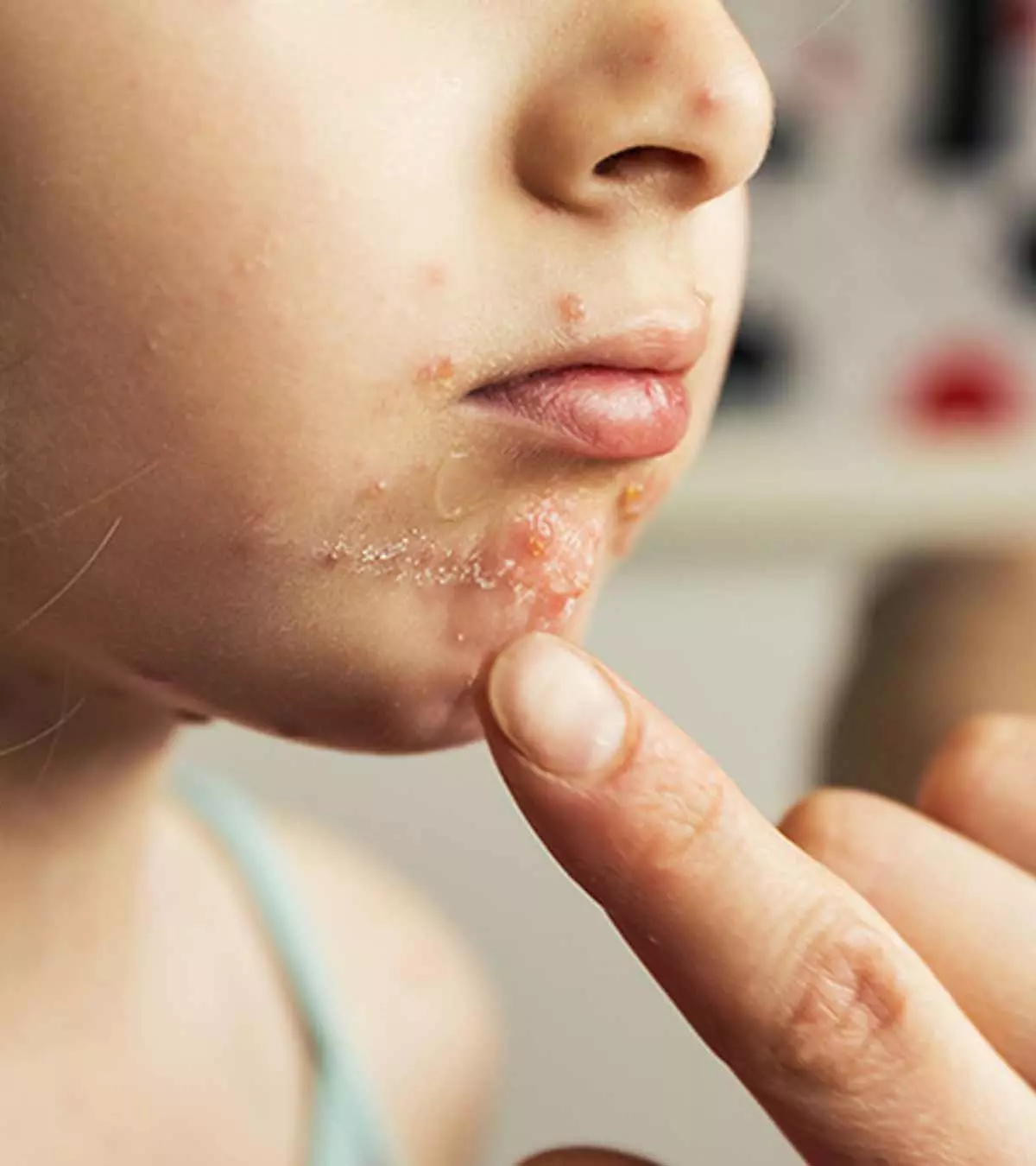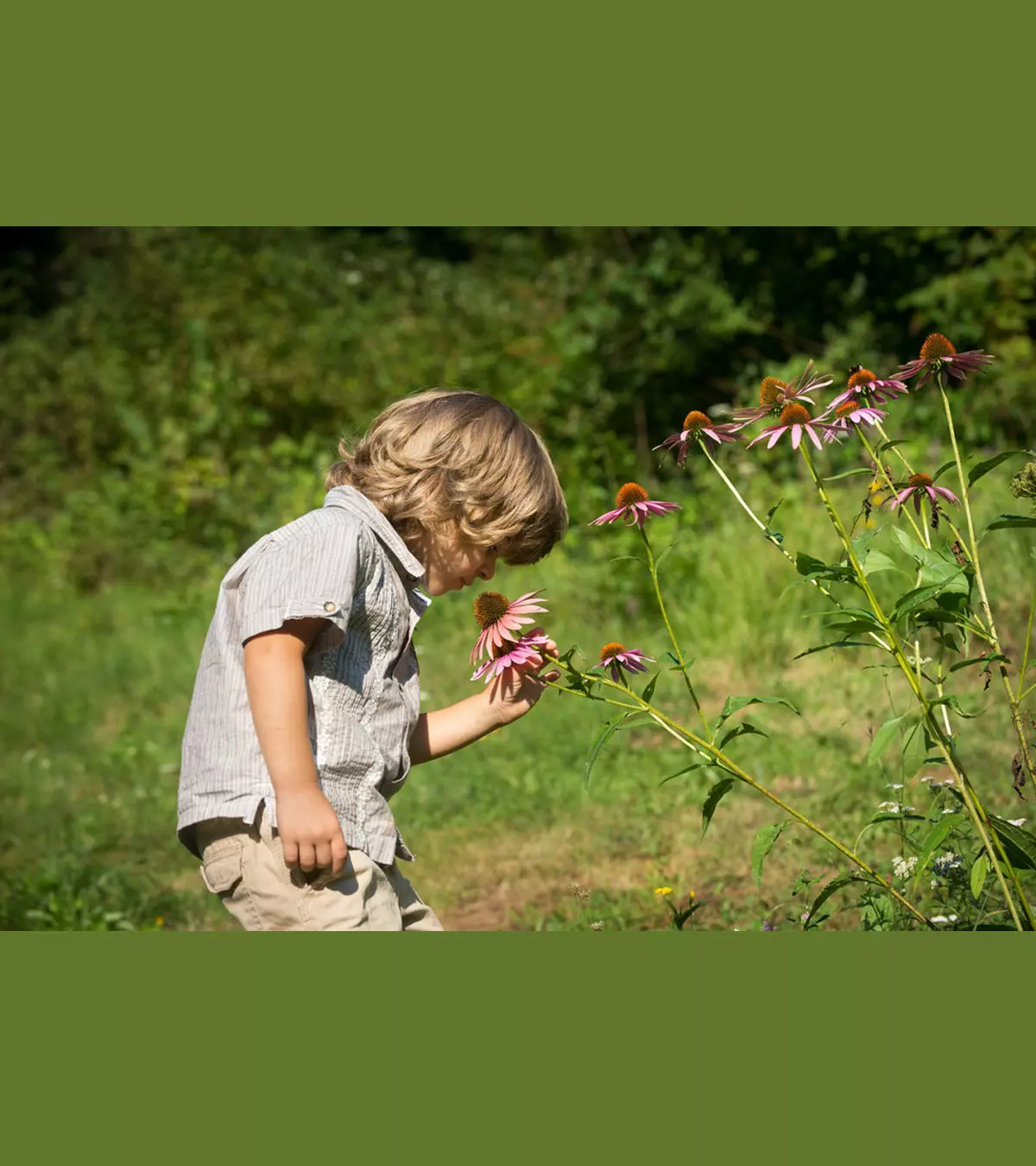
Shutterstock
Echinacea or purple cornflower is often used as a natural remedy for upper respiratory tract infections and other illnesses, such as cold, flu, and fever in children. However, parents must understand its effectiveness and safety before using echinacea for kids to treat illnesses or improve their general health (1).
Echinacea is a group of medicinal flowering plants found in North America (Echinacea purpurea, Echinacea angustifolia, and Echinacea pallida). It has been used to treat various infections and wounds for several centuries (2).
Read this article to learn whether echinacea is safe for children, its benefits and possible side effects, the precautions to take while using it, and the factors determining its dosage.
Key Pointers
- If used under expert guidance, echinacea or purple cornflower is considered safe for children aged 12 years and older.
- The correct dose depends on the child’s age, weight, medical condition, and the type of echinacea product.
- The herb may be beneficial in common colds, ear infections, and skin issues.
- It may cause gastrointestinal disturbance, fever, or allergies as side effects. It is best to consult a doctor before giving echinacea to children.
Is Echinacea Safe For Children?
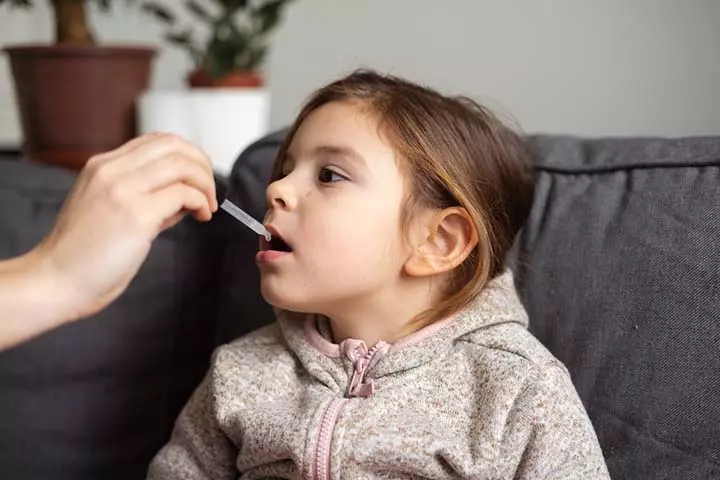
Image: Shutterstock
Guided use of echinacea is considered safe for children aged 12 years and above. However, its use in younger children is also prevalent in alternative medicine. If you want to try echinacea for your child, consult a pediatrician or alternative medicine expert. An aromatherapy and wellness expert can guide you about the safety of echinacea for your child based on their age, medical history, medication details, and overall health (3).
Additionally, they will suggest an age-appropriate dosage based on the intent of use. Echinacea is available in different forms, such as extracts (alcoholic, water, or oil), chewable tablets, tea, pills/capsules, gummies, and fresh/dried powder. Thus, discuss the best option for your child with your doctor (4).
 Trivia
TriviaSafe Dosage For Children
The use of echinacea as a dietary supplement or herbal medicine isn’t well-regulated, as dietary supplements and herbal medicines do not undergo the US FDA’s safety regulation checks. Therefore, their safety and efficacy aren’t apparent. Besides, the right dosage of echinacea for children depends on the child’s age, weight, medical condition, type of echinacea product, and mode of use, that is, oral or topical (5).
All these factors make selecting and administering echinacea to children tricky. Hence, you should follow the dosage as recommended on the package. Alternatively, you may consult an expert who could recommend a safe dosage for your child’s condition.
Uses Of Echinacea For Children
The roots and herbs of the echinacea plant contain bioactive compounds, such as alkamidesiPlant compounds with antimicrobial, antioxidant, and diuretic properties , caffeic acidiCompound found in all plant species and found in foods such as coffee, wine, and tea derivatives, polysaccharidesiNatural carbohydrates that provide energy , and glycoproteinsiMolecules made of protein and carbohydrates . These compounds confer antioxidant, antibacterial, antiviral, anti-inflammatory, and immunomodulatoryiA substance that stimulates or suppresses the immune system properties to echinacea (6).
Here’s a brief overview of the uses of Echinacea for children.
- Common cold: Herbal preparation of Echinacea is proven to improve the common cold symptoms in adults; however, it is found ineffective in children (7). A 2011 literature review concludes that Echinacea purpurea taken at the first signs of cold might reduce the duration and severity of symptoms (8). In another study, it was found that certain Echinacea products might help relieve colds(9) . But majorly, the clinical trials and research offer mixed results.
- Ear infections: Recurrent otitis media (middle ear infection) is one of the many common diseases in children, especially young ones (10). Alternative medicine experts and herbalists recommend using echinacea to treat and manage ear infections (2). However, a 2008 randomized-controlled trial shows that treating otitis media with echinacea products might increase the risk of its recurrence (11).
- Skin issues: Research shows that echinacea can help treat acne. Herbal echinacea extract possesses antibacterial and anti-inflammatory properties, which help inhibit the bacteria (PropionibacteriumiA commensal bacteria that can occasionally cause infectious diseases ) growth and reverse the inflammation caused by the bacteria (12). Besides, the topical use of Echinacea is also known to treat wounds, ulcers, insect bites, eczema, allergies, and cold sores in children (13).
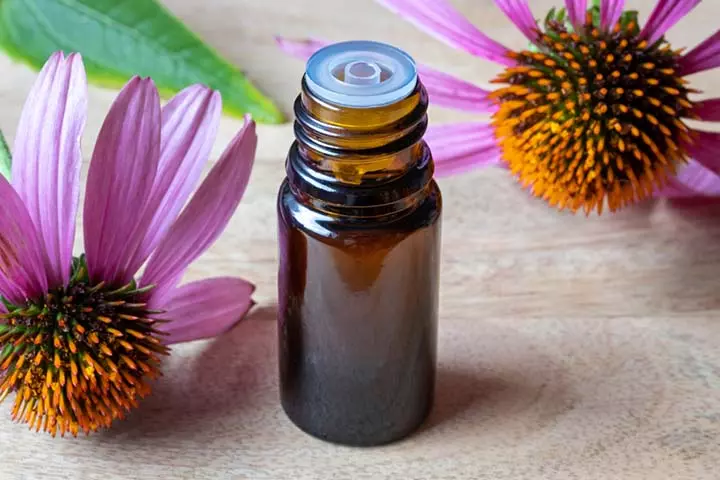
Image: Shutterstock
- Immunity: Several parents use echinacea to boost their children’s immunity. A 2007 research study suggests echinacea can affect one’s innate and adaptive immunity. However, how much effect an echinacea product will have on one’s immunity depends on the species of echinacea used for making the product, the plant part used, and the extraction method as highlighted by research and clinical trials (6) (14) (15). Nonetheless, echinacea’s guided use may help in strengthening the immune system.
 Caution
CautionPossible Side Effects Of Echinacea
Generally, echinacea is well tolerated in adults. However, it may cause the following side effects in children (1).
- Abdominal pain, diarrhea, and vomiting
- Fever and chills
- Unpleasant taste in the mouth
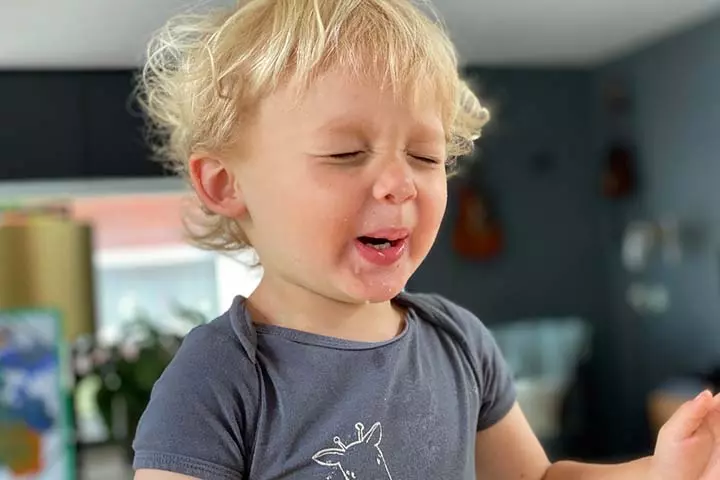
Image: Shutterstock
- Temporary tingling and numbing of the mouth
- Insomnia (16)
- Skin rash and allergic reactions, especially if the child is allergic to daisy family plants, such as marigold and ragweed (4)
Using Echinacea topically may cause red itchy rashes on the child’s skin, most likely due to an allergic reaction.
Precautions To Take When Using Echinacea For Children
Here are some simple precautions that you should observe when using echinacea for your child (3).
- Consult a pediatrician or alternative medicine expert before using echinacea for your child regardless of the ailment. Also, share your child’s medical history, such as an allergy, and details of medications they take.

Image: Shutterstock
- Buy an echinacea product from a reputable and trustworthy manufacturer and seller. Before buying, take some suggestions from your healthcare provider. It will help ensure that the product you buy is contamination-free.
- Select a product that has USP written after the product name. It indicates that the product has been manufactured as per the recommendations set forth by the US Pharmacopeia. Also, choose an alcohol-free echinacea product for your child.
- Read the product label carefully while purchasing an echinacea product. The label should tell you about the active and inactive ingredients, such as vitamins, minerals, or sugar, in the product.
- Follow the dosages as directed by the doctor and administer them carefully. Store the echinacea products away from children to prevent accidental ingestion.
- Inform the child not to take caffeine or caffeinated beverages, such as energy drinks or cola, with echinacea, as it can increase the caffeine’s side effects, such as rapid heart rate and headache.
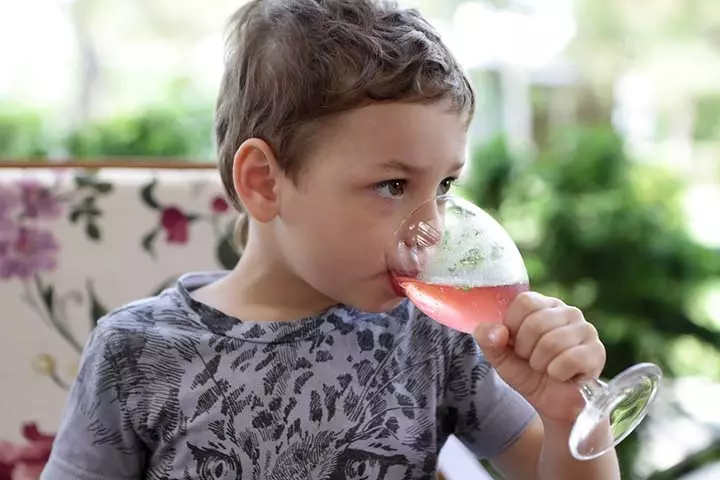
Image: Shutterstock
Echinacea should never be administered to immunocompromised children, children with an autoimmune disorder, or those who have any liver disorder (2).
Frequently Asked Questions
1. Does echinacea help patients with COVID-19?
A systematic review study reported that echinacea supplementations may help increase the levels of anti-inflammatory cytokineiSmall protein cells that play a role in controlling the activity of the immune system and blood cells IL-10 and pro-inflammatory cytokine IFN. Since the levels of IFN are usually low in patients with COVID-19, echinacea may be beneficial for them (17).
2. Does echinacea affect the kidneys?
The NHS suggests that the intake of echinacea may interfere with the functioning of the kidneys (18). Therefore, it is advised that you consult your child’s doctor before administering this medication to them.
3. Is echinacea good for anxiety?
According to a study conducted on 104 participants dealing with anxiety issues, the intake of echinacea can be associated with reduced anxiety levels. However, more research must be done on this subject to validate the facts (19).
4. What happens if I take too much echinacea?
The side effects of excessive intake of echinacea include (20):
- Dizziness
- Upset stomach
- Nausea
- Allergic reactions
Echinacea is a popular herb used in several natural remedies to treat ailments such as cold and flu. Children over 12 years old can take echinacea, but most of its uses are supported by anecdotal evidence. This alternative medication might treat various conditions. However, it also causes side effects in children, including insomnia, bad taste in the mouth, diarrhea, and vomiting. Therefore, consulting a healthcare provider, learning about the ingredients used, and purchasing the product from a credible manufacturer is essential to ensure the safe use of echinacea for kids.
Infographic: Drug Interactions Of Echinacea
Consuming echinacea when on any medicines may increase or decrease its effect. Although the herb has not been found to have any major drug interactions, the infographic below discusses some possible ones. Illustration: Momjunction Design Team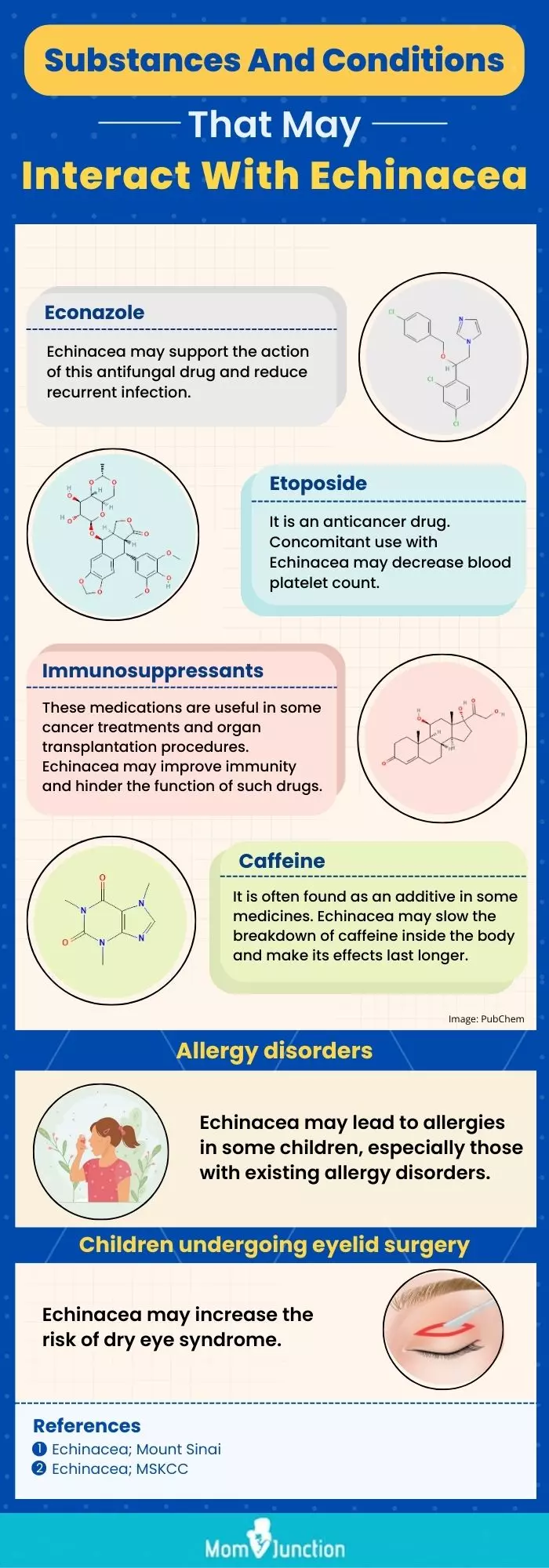
Illustration: Echinacea For Children: Is It Safe And Precautions To Take

Image: Stable Diffusion/MomJunction Design Team
Explore the powerful immunity boosting benefits of Echinacea in this informative video! Use this information wisely and get ready to feel healthier and stronger!
References
- Echinacea.
https://www.nccih.nih.gov/health/echinacea - Echinacea.
https://www.mountsinai.org/health-library/herb/echinacea - Echinacea.
https://www.mottchildren.org/health-library/d04407a1 - Echinacea.
https://www.aafp.org/pubs/afp/issues/2003/0101/p77.html - FDA 101: Dietary Supplements.
https://www.fda.gov/consumers/consumer-updates/fda-101-dietary-supplements - Azadeh Manayi et al. (2015). Echinacea purpurea: Pharmacology phytochemistry and analysis methods. DOI
https://www.ncbi.nlm.nih.gov/pmc/articles/PMC4441164/ - Treatment of the Common Cold in Children and Adults.
https://www.aafp.org/pubs/afp/issues/2012/0715/p153.html - Richard Nahas (2011). Complementary and alternative medicine for prevention and treatment of the common cold. DOI
https://www.ncbi.nlm.nih.gov/pmc/articles/PMC3024156/ - Echinacea for preventing and treating the common cold.
https://www.cochrane.org/CD000530/ARI_echinacea-for-preventing-and-treating-the-common-cold - Ear infections and glue ear.
https://www.rch.org.au/kidsinfo/fact_sheets/Ear_infections_and_Otitis_media/ - Richard A Wahl et al. (2008). Echinacea purpurea and osteopathic manipulative treatment in children with recurrent otitis media: a randomized controlled trial. DOI
https://pubmed.ncbi.nlm.nih.gov/18831749/ - M Sharma et al. (2011). The potential use of Echinacea in acne: control of Propionibacterium acnes growth and inflammation. DOI
https://pubmed.ncbi.nlm.nih.gov/20830697/ - James B. Hudson. (2012). Applications of the Phytomedicine Echinacea purpurea (Purple Coneflower) in Infectious Diseases. DOI
https://www.ncbi.nlm.nih.gov/pmc/articles/PMC3205674/ - Zili Zhai et al. (2007). Enhancement of innate and adaptive immune functions by multiple Echinacea species. DOI
https://pubmed.ncbi.nlm.nih.gov/17887935/ - Michele Catanzaro et al. (2018). Immunomodulators Inspired by Nature: A Review on Curcumin and Echinacea. DOI
https://www.ncbi.nlm.nih.gov/pmc/articles/PMC6278270/ - Echinacea. DOI:
https://www.ncbi.nlm.nih.gov/books/NBK501810/ - Monique Aucoin et al.; (2021); A systematic review on the effects of Echinacea supplementation on cytokine levels: Is there a role in COVID-19?
https://www.sciencedirect.com/science/article/pii/S2589936821000396 - Pharmacy remedies and kidney disease
https://www.nhs.uk/conditions/kidney-disease/living-with/ - Adrian L Lopresti and Stephen J Smith; (2021); An investigation into the anxiety-relieving and mood-enhancing effects of Echinacea angustifolia (EP107™): A randomised double-blind placebo-controlled study.
https://www.sciencedirect.com/science/article/abs/pii/S0165032721006406 - Echinacea: What Should I Know About It?
https://familydoctor.org/echinacea-what-should-i-know-about-it/
Community Experiences
Join the conversation and become a part of our nurturing community! Share your stories, experiences, and insights to connect with fellow parents.
Read full bio of Dr. Dur Afshar Agha
Read full bio of Swati Patwal
Read full bio of Rohit Garoo
Read full bio of Dr. Joyani Das










